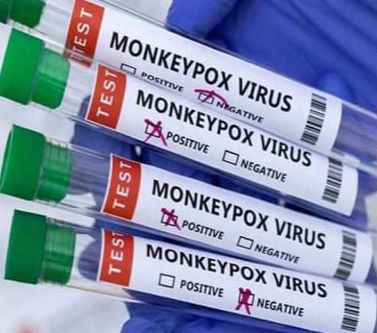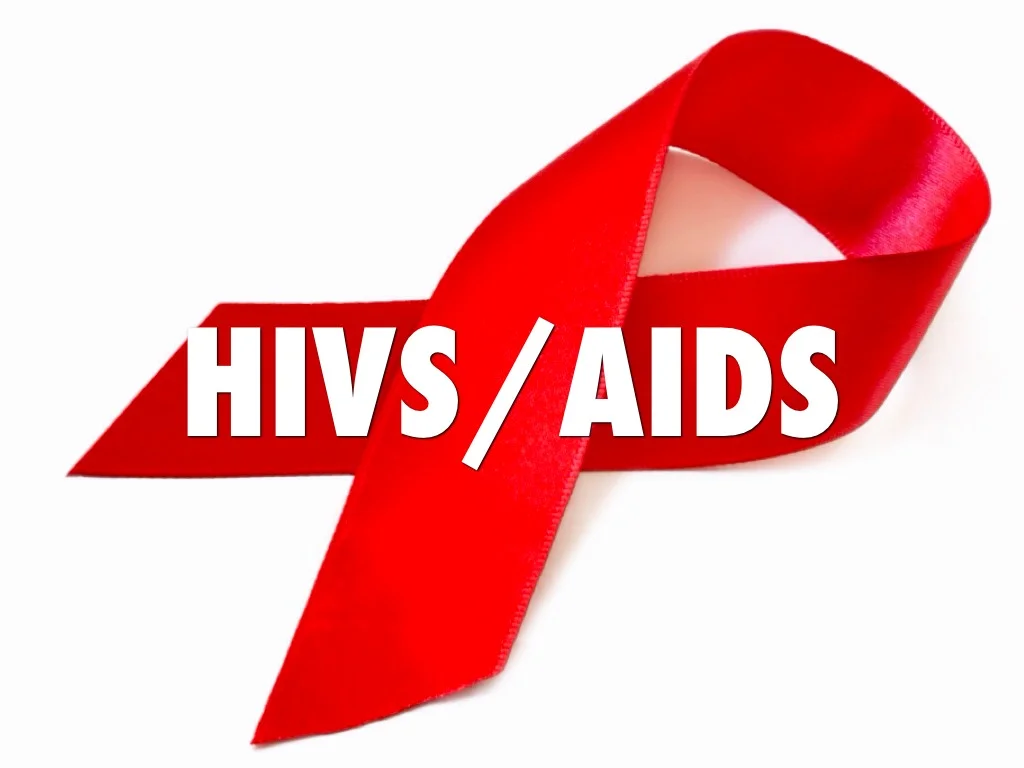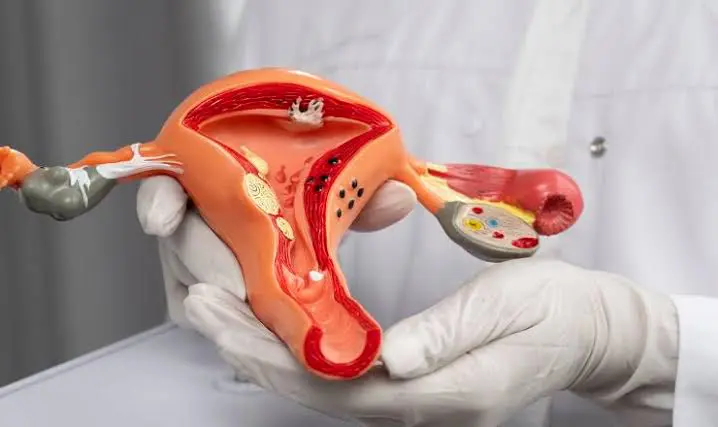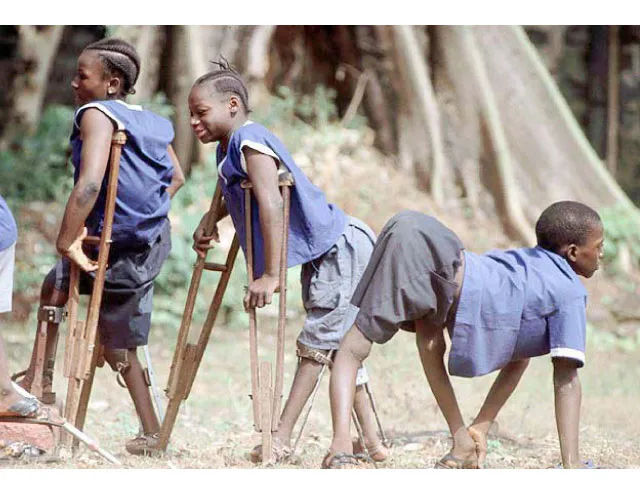Health
WHO Declares Global Health Emergency Over New Mpox Variant In Africa
Published
8 months agoon
By
Ekwutos Blog
The World Health Organization (WHO) declared a global public health emergency due to the rapid spread of a new variant of the mpox (Monkey Pox) virus across 13 African countries.
This marks the second time in two years that the WHO has issued such a high-level alert for mpox, highlighting the severity of the situation.
The decision follows an outbreak in the Democratic Republic of Congo (DRC), where the virus has begun spreading to neighboring countries, including Burundi, Kenya, Rwanda, and Uganda.
WHO Director-General Tedros Adhanom Ghebreyesus emphasized the urgency, stating, “This is something that should concern us all,” as he announced the emergency declaration at a press conference on Wednesday.
The PHEIC (Public Health Emergency of International Concern) declaration is intended to mobilize international resources and cooperation to combat the outbreak.
The new variant, known as clade Ib, appears to spread more easily than its predecessor, clade I, which initially caused the DRC outbreak.
In response to the escalating crisis, the Africa Centres for Disease Control and Prevention has reported over 17,000 suspected cases and 517 deaths on the continent this year alone, a significant increase from the previous year.
An agreement has been reached with the European Union’s health task force and vaccine manufacturer Bavarian Nordic to supply 215,000 doses of the mpox vaccine to Africa, with plans to distribute millions more by the end of 2025.
You may like


Kano government uncovers ₦27.8m payroll fraud in local councils


NOTICE FROM INEC VOTER IDENTIFY CARD REVALIDATION


Kwankwaso: NNPP considering three options – Ladipo Johnson


Stop demarketing Nigeria – PDP chieftain tells Peter Obi


I never met Uzodinma to negotiate APC detection – Otti


Energy drink tussle: Court rules in favour of Mamuda Beverages Nigeria Limited
Health
Ogun unveils new strategy to fight HIV/AIDS
Published
2 days agoon
April 24, 2025By
Ekwutos Blog
Ogun State Government has unveiled a new strategic plan aimed at achieving zero infection and ensuring sustained treatment and care for people living with HIV/AIDS epidemic.
Commissioner for Health, Dr. Tomi Coker, made this known at the opening of a three-day stakeholders’ engagement meeting towards developing the State HIV/AIDS Strategic Plan for 2025-2027 in Abeokuta on Wednesday.
Coker, represented by the Special Adviser to the Governor on Health, Dr. Tayo Lawal, affirmed that the new development would play a significant role in the lives of the people living with HIV.
The Commissioner stated that, “it’s no longer news that donors are drastically withdrawing their support, unlike during the World Bank era when support was at its peak. We’re all witnesses to the current state of HIV response in the country.
“However, the fight against the disease cannot be won by the government alone; a multisectoral response to HIV must be fully activated. Every stakeholder must come together to fight this epidemic.”
In his welcome address, the Executive Secretary of the Ogun State Agency for the Control of AIDS, Dr. Kehinde Fatungase, emphasised the need to develop a technical work plan that would guide the state’s efforts over the next two years, utilising available resources effectively, despite the existence of a National Strategic Plan.
Representatives from the National Agency for the Control of AIDS, APIN Public Health Initiative, and Civil Society on HIV/AIDS in Nigeria, showed commitment towards supporting the planning and implementation of the strategic plan.
Health
12,000 women diagnosed with cervical cancer annually – Minister
Published
5 days agoon
April 21, 2025By
Ekwutos Blog
About 12,000 Nigerian women are diagnosed with cervical cancer annually, despite the disease being largely preventable, the Coordinating Minister of Health and Social Welfare, Dr Mohammed Ali Pate, has disclosed.
The Minister made the disclosure during the launch of the cervical cancer vaccine campaign and the Human Papillomavirus (HPV) vaccine integration sensitisation exercise held at Government Girls College, Bauchi.
According to him, “There is the need for greater awareness among stakeholders as part of efforts to eliminate cervical cancer in Bauchi State and across Nigeria.”
With the HPV vaccine, Pate stated that the disease can be prevented if vaccination is administered early to individuals who are susceptible to the virus and at risk of eventually developing cervical cancer.
He assured the commitment of the President to the cause and recalled the official flag-off of the HPV vaccination campaign in October 2023.
The Director-General of the National Institute for Cancer Research and Treatment, Dr Usman Malami, in his remarks, explained that cervical cancer is one of the few cancers with a known cause.
He added that it makes it one of the most preventable forms of cancer, stressing that since they already know what causes it and what can provide lifelong immunity, vaccination becomes a critical tool.
Health
Katsina targets three million children for polio immunisation — Official
Published
1 week agoon
April 16, 2025By
Ekwutos Blog
The Katsina State Primary Healthcare Development Agency (SPHCA) says it is targeting not less than three million children during the polio immunisation campaign scheduled for 26 -29 April.
Its Executive Secretary, Shamsudeen Yahaya, made the disclosure on Tuesday at a media dialogue with UNICEF, Katsina State Government officials and partners on polio and routine immunisation in the state.
Mr Yahaya said the exercise was aimed at creating awareness of the importance of immunisation in saving children from preventable deaths.
He, therefore, urged the media to continue to enlighten caregivers and other stakeholders on the importance of immunisation.
He revealed that the state has 1,636 health facilities providing routine immunisation services for children.
Mr Yahaya said the government would engage 3,700 independent monitors to ensure that each eligible child is reached during the campaign.
In his remarks, the Officer-in-Charge (OIC), also the Nutrition Manager of UNICEF Kano Field Office, Karanveer Singh, stressed the need to immunise every child against polio and other deadly diseases.
Mr Singh revealed that polio is highly infectious, warning, “Once a child is infected with the virus, he or she is permanently paralysed.”
The officer explained that every round of immunisation is important, as is immunising every child until the virus is completely eradicated.
He added that immunisation is the backbone of any eradication programme, hence the need for caregivers and other stakeholders to intensify efforts in ensuring that all children below five years are fully immunised.

Kano government uncovers ₦27.8m payroll fraud in local councils

NOTICE FROM INEC VOTER IDENTIFY CARD REVALIDATION

Kwankwaso: NNPP considering three options – Ladipo Johnson
Trending

 Trending6 months ago
Trending6 months agoNYA demands release of ‘abducted’ Imo chairman, preaches good governance
- Business6 months ago
US court acquits Air Peace boss, slams Mayfield $4000 fine

 Politics6 months ago
Politics6 months agoMexico’s new president causes concern just weeks before the US elections
- Entertainment6 months ago
Bobrisky transferred from Immigration to FCID, spends night behind bars
- Entertainment6 months ago
Bobrisky falls ill in police custody, rushed to hospital

 Politics6 months ago
Politics6 months agoRussia bans imports of agro-products from Kazakhstan after refusal to join BRICS

 Politics6 months ago
Politics6 months agoPutin invites 20 world leaders
- Politics1 year ago
Nigerian Senate passes Bill seeking the establishment of the South East Development Commission.

